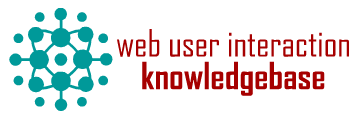Модули
Instead of showing a standard "404 Page not found", this module performs a search on the keywords in the URL, e.g. if a user goes to http://example.com/does/not/exist, this module will do a search for "does not exist" and shows the result of the search instead of the 404 page. This should help retain visitors coming in from old URLs linked from other sites or from search indices.
It also includes search engine keywords detections as well as regular expression based term filtering from the URL.
The adminblock module enables admins to display a block with the comments approval queue and the node moderation queue. Each item gets their own edit link and delete link for quick administration.
CronPlus adds more "cron" hooks to Drupal beyond the basic one, with each of the new hooks being called at or near specified time intervals (hourly, daily, weekly, monthly, and yearly).
This wants to become a feature rich, advanced gallery. It uses nodes for everything, but depends heavily on image and views module.
This module allows visitors to the site to volunteer for an event and provides the site administrator with comprehensive Volunteer management tools to keep track of Volunteers, tasks and communication.
A module that lists every user on the site with a certain profile_field filled in, similar to a site directory of users with that information listed (i.e., users with an AOL Instant Messenger or XF
The roledelay module allows you to set a user role that new members are granted after a certain time period from registration.
Module maintainer @podarok
The Location module allows real-world geographic locations to be associated with Drupal nodes, including people, places, and other content. The Location module allows admins to collect addresses, geocode them (translate addresses to lattitude/longitude), and associate locations with Drupal nodes and users. Location data is automatically used to generate GeoRSS within your existing RSS feeds.
We need help from developers with #1931088: [META] Fixing tests
#1940818: [META] Location 7.x-3.6 release roadmap
#2127933: [META][SPRINT][Location] Documentation sprint
At present, it is the only module that provides the views integration necessary for implementing location-based searches and is designed for the purpose of finding points on a map within a vicinity of a user-supplied location. Â If you are interested in the presentation and manipulation of geographic data beyond points (e.g., lines, polygons, etc) I would recommend using the geofield and open layers modules.
Important location search change: For those using the location search sub-module, as of location 6.x-3.2 and 7.x-3.0-alpha1 users must have the "access content" permission and any relevant node access rights to see node based location search results and the "view user profiles" and "view all user locations" permissions to see user based location search results.
If updating from earlier versions and using location search, make sure to check these permissions.
This module defines a new node type called discography, which contains album details.
This is a simple filter module to embed TeX-generated images into Drupal nodes, which is very useful for embedding complex math formulas in pages without making images by hand and uploading them to Drupal.
RSVP lets users invite people to attend an event. Users create an 'RSVP' from an event, send an invitation email to a list of people and then track who has looked at the invitation and their responses. Invitees can view and reply without having user accounts.
RSVP creators can be setup the RSVP to hide other attendees, allow attendees to send email messages to the group, or invite more attendees.
This module allows you to define a "what's related" list of links to a node.
This module provides your sites visitors to browse and search jobs, or post their resumes for employers/recruiters to see. It also allows job seekers to apply for jobs. In effect, your site can be a mini monster.com or hotjobs.com.
You can also use it in conjunction with Job Plus module.
Component module (for use by other modules). Converts HTML into plain text equivalent.
Evaluation.module serves the needs of the academic instructor who needs to monitor the progress of his students.
The publish module allows you to create channels which other Drupal sites may subscribe to using the subscribe module. Both push and pull publishing models are supported. Communication between the publishing and subscribing sites is accomplished via XML-RPC.
- This module has been replaced by Wysiwyg API, which (also) integrates the TinyMCE editor with your Drupal site and provides the same functionality. Most (if not all) users should install or migrate to Wysiwyg API instead.
This module was the first to integrate Moxiecode's popular TinyMCE WYSIWYG editor into a Drupal site for editing advance site content. Unfortunately, the approach is dated. While I am going to make another push to get a customized version of TinyMCE committed, sun's approach to editor agnostic WYSIWYG in the WYSIWYG API is much more likely to get an editor into core.
You should only continue using this module if you are interested in modifying the editor itself. Users interested in simply activating the TinyMCE editor distributed by Moxiecode should move (and contribute) to the WYSIWYG API.
Taxonomy Defaults allows you to assign default terms from any vocabulary to any node-type. The default terms will be pre-selected on the /node/add form, but can be edited.
If a vocabulary is marked as "Hidden" for a particular content type, then that vocabulary will not be shown on the /node/add form and the default terms will be assigned automatically and cannot be edited.
This module allows users, with permission, to submit movie reviews.
This is a combined guestbook and shoutbox module. It is multiuser aware, it is meant to be blogcentric, so each blog owner can have thier own shoutbook.
